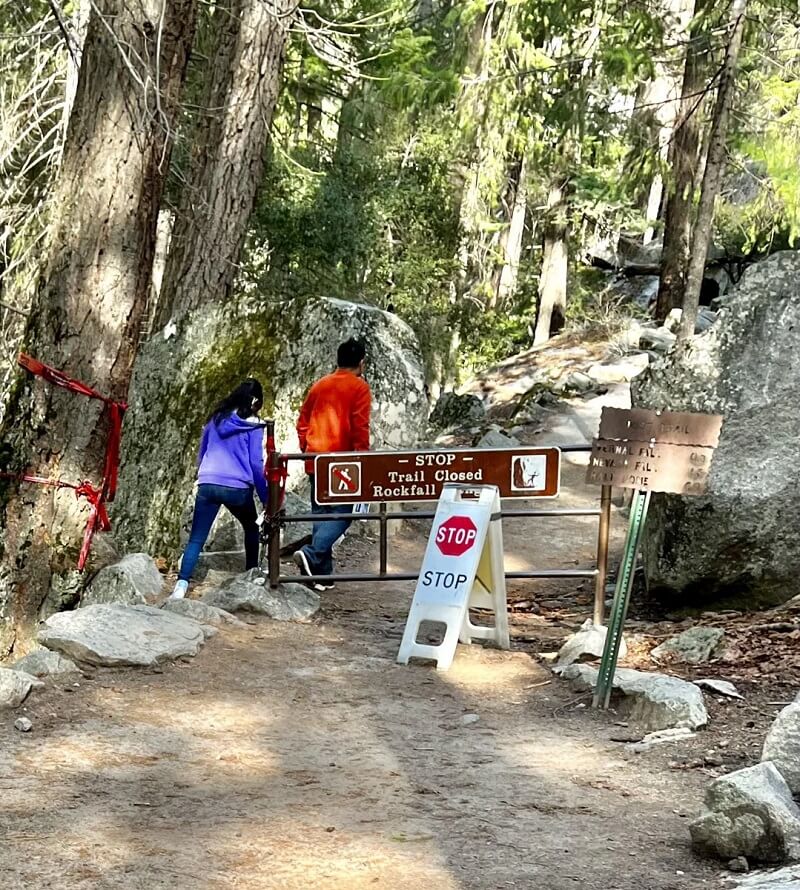One of the most exciting aspects of getting out into nature is coming across wildlife that we're not used to seeing, whether it's an elusive local turtle or a species sighted for the first time in a region, such as this blue rock thrush.
But getting too close to wildlife may put us in danger and is definitely a detriment to the animals, such as when "human presence or anthropogenic noise" triggers antipredator behavior, David Frey says in The Wildlife Society.
In addition to wildlife, nature can pose dangers to people who don't take precautions in dangerous conditions.

This image, shared in the r/NationalPark subreddit, showed two people squeezing past a "STOP Trail Closed" sign to hike on a national park trail despite a rockfall warning.
"Please don't be a Turon," the Reddit post urged. Usually spelled "touron," the term derives from a combination of "tourist" and "moron" and refers to tourists who do annoying, unsafe things.
"I was amazed by the number of people who ignored the signs at the trailhead," one user remarked. "Even telling people that there are dangerous rock falls at Glacier point or a super slippery ice floe across the trail just above a cliff... I don't honestly know what else NPS can do or say."
People who ignore guidelines established by parks for safe interactions with wildlife and the landscape potentially endanger themselves, bystanders, wildlife, and nature. For example, a tourist in Yellowstone National Park recently got too close to bison, resulting in the person getting injured and, ultimately, arrested.
One of the mandates of the National Park Service under The Organic Act, in place since 1916, is to "conserve park resources 'unimpaired' for the enjoyment of future generations."
"Rangers are stretched too thin as it is," another user pointed out. "They need to stop rescuing people who don't obey and/or charge them the full amount of the cost of any rescue."
Yet another commenter said: "They need a ranger posted there full time, was there this weekend and it was out of control."
Trusting that rules for how we behave in natural areas are for our benefit goes a long way in protecting other species and their habitats, which provide not only rich wildlife experiences but also a buffer against climate change.
See six ways that nature can protect us from climate change.
Join our free newsletter for cool news and cool tips that make it easy to help yourself while helping the planet.









